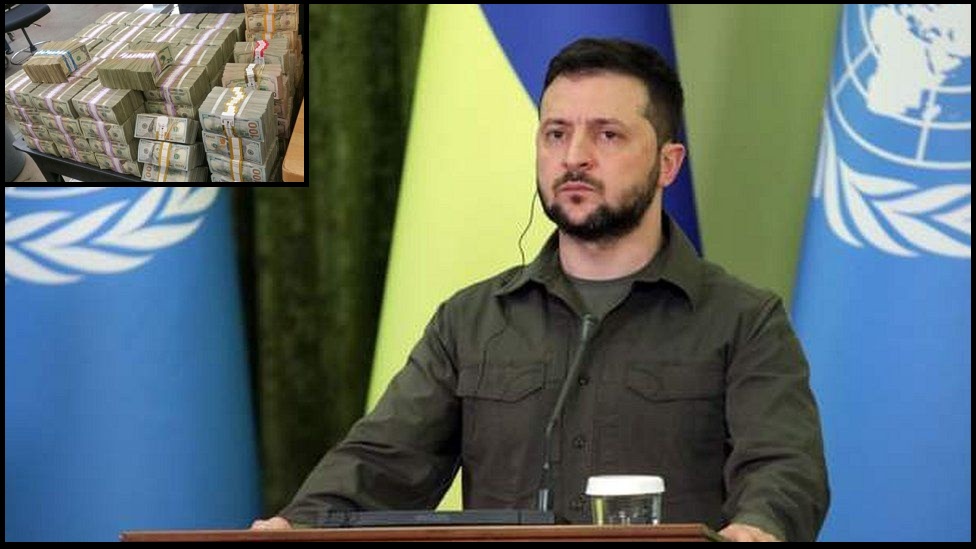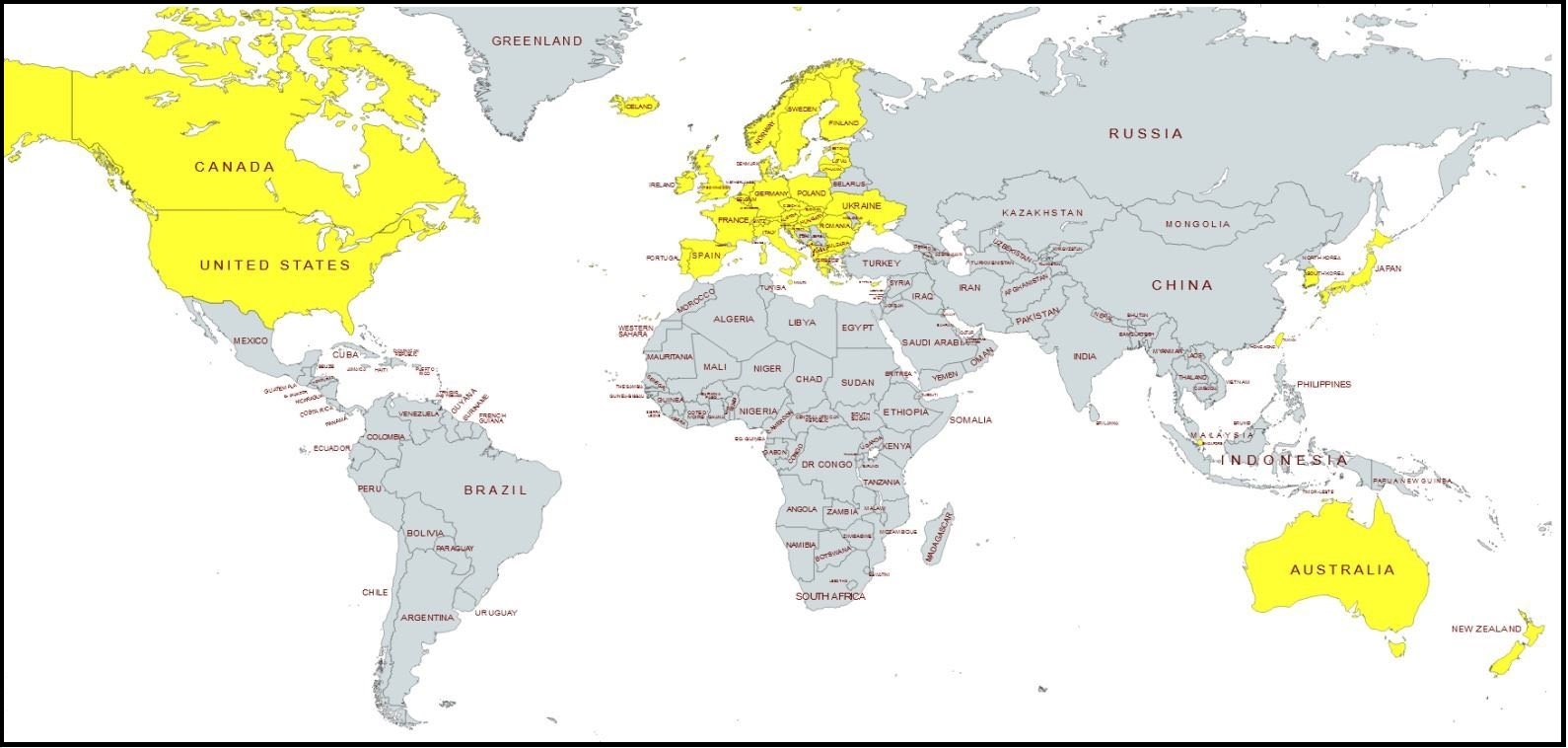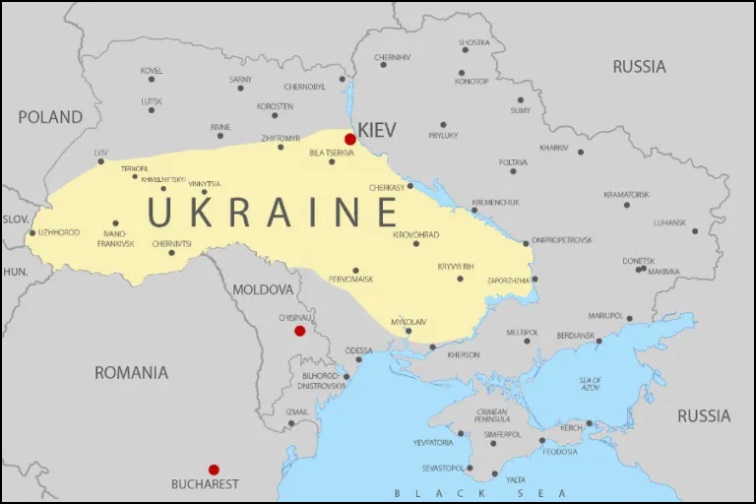Hungarian Prime Minister Viktor Orban Seeks Exit from NATO Conflict with Russia
The position of Hungary in the Ukraine vs Russia conflict has been consistently pragmatic. Ukraine is NOT a NATO country, and when the USA essentially demanded that all NATO member states join in a unified mission against Russia, to promote the specific interests of the United States, it never made sense.
 Hungary has maintained a consistent position that NATO is a defensive partnership that should not seek conflict and war outside its member state boundaries. However, the USA has previously used its leadership role in NATO to pressure member states to join in conflict outside the NATO boundaries, ie. Iraq and Libya.
Hungary has maintained a consistent position that NATO is a defensive partnership that should not seek conflict and war outside its member state boundaries. However, the USA has previously used its leadership role in NATO to pressure member states to join in conflict outside the NATO boundaries, ie. Iraq and Libya.
In the modern era (since Obama), the former left-wing peacenik movement has reversed position and are now the leading advocates for global war. Democrats, leftists, globalists and various trade union organizations, who have supported the merge of government with corporations, now advocate for all positions that advance war and general international conflict. As a consequence, NATO is now an offensive weapon; that’s the contextual background.
The USA has created a proxy state with exploitation and control over Ukraine. Russia has responded to the USA control over Ukraine by force. The USA now wants to create war with Russia using NATO as the offensive weapon. Hungary does not want to participate in this NATO offensive position. This puts Hungarian Prime Minister Viktor Orban on the outside of the NATO alliance group and a direct target of the USA.
BUDAPEST, Hungary (AP) — Hungary will seek to opt out of any NATO operations aimed at supporting Ukraine, Prime Minister Viktor Orbán said Friday, suggesting that the military alliance and the European Union were moving toward a more direct conflict with Russia.
Orbán told state radio that Hungary opposes a plan NATO is weighing to provide more predictable military support to Ukraine in coming years to repel Moscow’s full-scale invasion, as better armed Russian troops assert control on the battlefield.
“We do not approve of this, nor do we want to participate in financial or arms support (for Ukraine), even within the framework of NATO,” Orbán said, adding that Hungary has taken a position as a “nonparticipant” in any potential NATO operations to assist Kyiv.
“We’ve got to redefine our position within the military alliance, and our lawyers and officers are working on … how Hungary can exist as a NATO member while not participating in NATO actions outside of its territory,” he said. (read more)
Watch the cryptocurrency market to determine which side of the influence war is winning.
The most influential bankers and corporations are generally aligned with the West. If the needle pushes toward increased conflict with Russia, the value of crypto will drop.
The non-globalist nation states, and the new formation of BRICS as a global trade alternative, are less and less dependent on the West; they are also diminishing the influence of the dollar within their assembly. If the needle pushes away from conflict with Russia, the value of crypto will increase.
Crypto dropping indicates WEF valuations leaning toward a NATO war with Russia. Crypto increasing in value indicates WEF discussion leaning away from a NATO war with Russia. Other financial datapoints, the best predictor of geopolitical movement, also fit this general overview.
(Via Politico) – Hungarian Prime Minister Viktor Orbán said Friday his country was looking to redefine its membership in NATO to ensure the country cannot be involved in operations outside of the military alliance’s territory.
“Now a new term has been invented to describe the Hungarian position in NATO, it is called non-participation. We are not a participant now,” Orbán said in an interview with Kossuth Radio, according to a report by Hungarian news portal Telex.
“There is the term opt-out … If we were opt-outs, our participation in NATO’s military structure, our position, would change,” Orbán was quoted as saying.
The Hungarian leader said lawyers are working on how Hungary can exist as a member of NATO and not participate in the alliance’s action outside NATO territory, according to the report.
“There’s no question of NATO getting involved in wars outside its territory, with non-NATO countries,” Orbán was quoted as saying. (more)
 Oddly, as I watch more obscure data that few pay attention to, the Biden administration seems to have somewhat backed away from promoting direct war with Russia. It’s still too early to tell exactly what is happening on this shift, but in the last 10 days things shifted.
Oddly, as I watch more obscure data that few pay attention to, the Biden administration seems to have somewhat backed away from promoting direct war with Russia. It’s still too early to tell exactly what is happening on this shift, but in the last 10 days things shifted.
Perhaps the CIA/USAID failures in Hungary, Moldova and now Georgia are having some more immediate influence on U.S. policy. I’m not sure why the CIA/State Dept would be having more difficulty in the past few weeks, but something has shifted in the direction of making war with Russia less likely.
One of the recent datapoints that is shifting the needle away from war, is the change in USA position about seizing Russian assets.
(VIA POLITICO) – Russian state assets were frozen in Europe immediately after President Vladimir Putin’s invasion of Ukraine in February 2022. They have since been invested and are earning interest. After months of disagreement, the U.S has scaled back its original plan to seize the assets in their entirety and instead use the interest as leverage for a loan.
The EU has more skin in the game because it holds the bulk of Russia’s frozen assets, while U.S. banks only keep a negligible amount of funds.
“We still need to understand the different options,” said German Finance Minister Christian Lindner. “We need to assess the economic, legal consequences so it’s much too early to be concrete on some of the elements of such an instrument.”
After months of disagreement, the finance ministers gathering in Italy tried to show a united front, but cracks emerged as EU counties showed only lukewarm support for the plan. (more)






Post a Comment